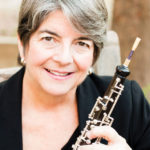 by Jane Owen, AFM Symphonic Services Division Negotiator
by Jane Owen, AFM Symphonic Services Division Negotiator
The best experiences I have as an AFM negotiator are getting to meet and work with the musicians who are part of their organization’s orchestra committee. These orchestra members, elected by their colleagues, take on the responsibilities of representing fellow musicians in the day-to-day business of performing in an orchestra, with all the attention to detail and artistic excellence that job entails. They are resourceful, hard-working, creative, and caring individuals who are often the unsung heroes dealing with the challenges of ongoing contract administration.
The orchestra committee acts as the representative of the AFM and your local in the workplace. For an orchestra that has no union steward, committee members are often the only representatives present when rehearsals and concerts are happening. The committee is part of the union team (consisting of the orchestra committee, the union steward, and local officers) responsible for the administration of the collective bargaining agreement (CBA) in the workplace. In a typical season, as an orchestra committee member, you can expect to deal with questions about and violations of your CBA, both major and minor. Many of these questions will come to you from the musicians. It is important that every musician in your orchestra knows who the committee members are and how to reach them.
Organizing the orchestra committee is the first step. As soon as the committee is chosen, the chair, secretary, and treasurer should be decided upon among the committee members. All the members of the committee should have a copy of their orchestra’s musicians’ association by-laws, as well as the current CBA, and a roster of all the members of the orchestra who are in the bargaining unit. Familiarize yourselves with the deadlines for dues, which need to be paid to the respective orchestra conferences (International Conference of Symphony and Opera Musicians, Organization of Canadian Symphony Musicians, or Regional Orchestra Players Association), and strike funds, if applicable. Is the orchestra committee responsible for holding elections for other musician committees—audition committees, peer review committees, players’ conference representatives, or board representatives? If so, what are those deadlines?
Now the real work begins! You may find yourself dealing with day-to-day problems of setup, lighting, temperature, or other working conditions. On the other end of the spectrum, you may be handling more long-term issues of discipline, dismissal proceedings, or harassment in the workplace. Management will also come to the orchestra committee with questions about how to interpret articles of the CBA, items not covered by the CBA, and approval for circumstances that may go against the CBA. Some issues can be handled quickly, on-site by the orchestra committee chair or another committee member, if the chair is not present. Others may require consultation and decisions by the entire committee. It is critical to involve the local in matters concerning discipline or dismissal or where management is asking for a waiver of CBA provisions. These can implicate the union’s duty of fair representation. Questions concerning electronic media will likely require the involvement of, not only the local, but the Federation as well—including a call to AFM Symphonic Electronic Media Director Debbie Newmark.
More orchestras are realizing that musician interaction with audience members and members of the community at-large are essential for continuing success for our organizations. Committee members can be helpful in encouraging this interaction through community activities, meet-and-greet opportunities for audience members, social media posts, and newsletters sent to our interested fans.
Where you do not have a separate negotiating committee, preparations for negotiations and the negotiations themselves are the responsibility of the orchestra committee. In the years leading up to a negotiation, the committee should keep record of situations that have arisen during the term of their current CBA, resolutions of those situations, and applicable article numbers. If you have been elected to a committee that will be negotiating, you will likely spend a lot of time doing preparation during the last season of your CBA preceding the negotiation. Surveys of the musicians, research into other CBAs and orchestras, and committee meetings to come up with a union proposal will be necessary. Negotiation committee members will need to be present for negotiation meetings, which can go on for hours, over several days, weeks, or months.
Participation in the orchestra committee and/or negotiating committee is, in short, a serious commitment of time and energy. It is a commitment to your fellow musicians, to your profession, to your local, and to the AFM as a whole. It can be the most annoying, frustrating, time-consuming, and, in the end, the most rewarding, service you do for your fellow musicians.




